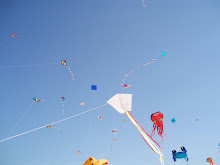
In previous centuries, theatre and poetry were viewed as mainstream forms of entertainment. Their popularity could be partly due to the lower literacy rates (not everyone had the ability to read to themselves. Poetry and theatre are easy to be performed and therefore watched and enjoyed). Also, another reason could be the lack of other forms of mainstream entertainments that can be enjoyed in a group which are available today (like the television, cinema, or internet).
In today’s society, poetry and theatre are often seen as being elitist. But there are many places where poetry and theatre can be found that are not considered high culture or mainstream. Music lyrics are a form of poetry that have a broad and diverse audience. In one form or another, music is enjoyed by most people. Music concerts have increased in popularity despite the falling number of record sales, and musicians and artists frequently use elements of theatre in their performance at live concerts. Exaggerating emotions helps the audience engage with the emotional facets of the music. Similarly, musicians enact or incorporate elements of the song’s story in their performance (for example, this could be clothing attire, backdrops, or dancers).
Poetry is also evidenced in advertising. Many products use slogans that have elements of poetry, like rhythm and rhyme. Their catchiness helps sell products as it makes the slogan stick in the viewers mind. Poetry is also found in community and Government announcements. The ad campaign for children and swimming safety had the slogan “kids alive, do the five”. An ad promoting fitness and exercise in Canberra has the slogan “don’t say one day, say Sunday”.
Many other art forms and texts also use elements of poetry and theatre.

